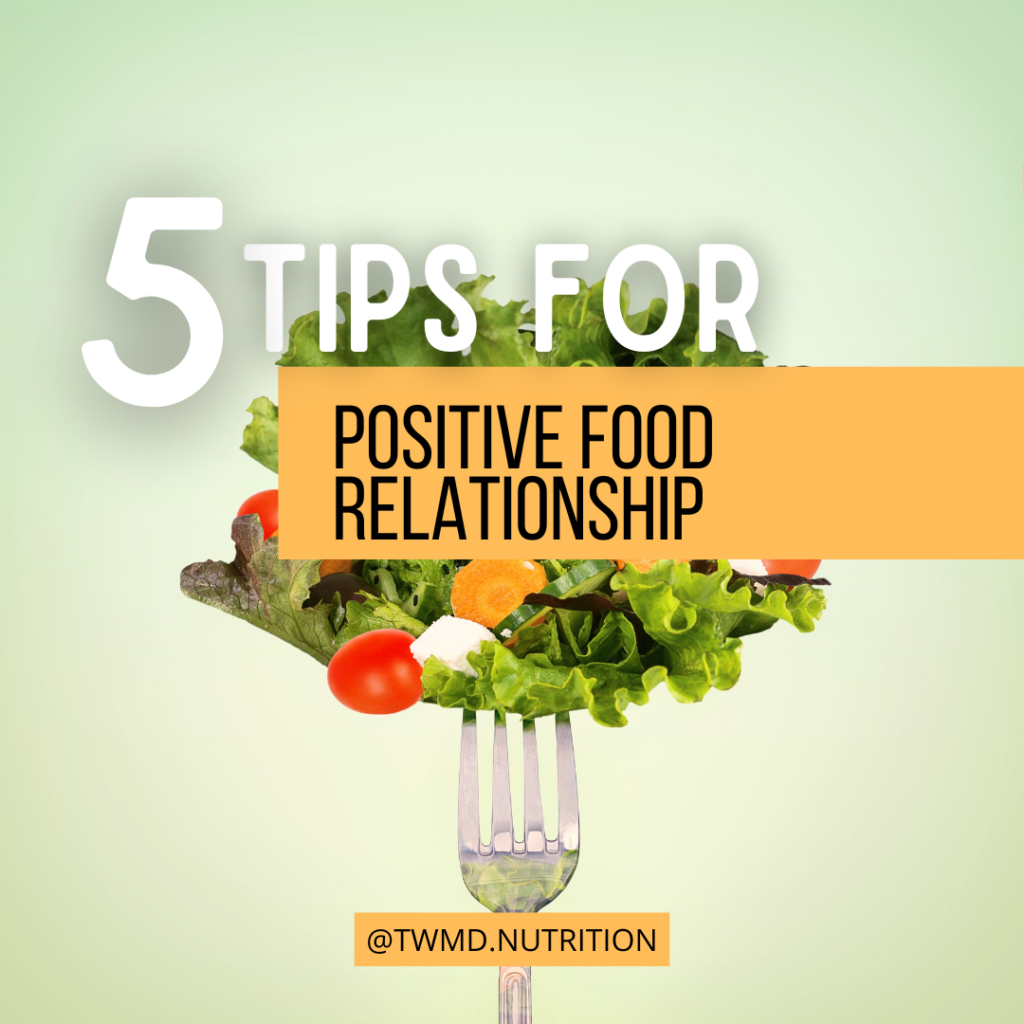Mindful Eating: 5 Tips for a Positive Food Relationship
Mindful eating is all about being present with your food and treating each meal as nourishment for your body and mind. It’s tuning into your body’s signals and being aware of how different foods affect your mood, energy, and hunger. It’s all about listening to your body and enjoying the moment! Remember, we’re eating for longevity in 2025, what we choose today impacts how we feel tomorrow. Take your time to savor each bite and appreciate the flavors, textures, and the experience of your meal.
Food is such a big part of our everyday lives that we often eat on autopilot, rushing through meals to get to the next thing or skipping meals because our days are packed. But being present while we eat isn’t something we always make time for. Start making mindful eating a regular habit and watch how it strengthens your connection with food and supports your long-term health. Remember, everyone’s journey is different, so what works for someone else might not work for you, and that’s totally okay!

Here are some tips that helped me develop a lasting, positive relationship with food and take control of my eating habits.
#1: Get in Sync with Your Body’s Cues:
Paying attention to hunger and fullness cues can be challenging but beneficial. Eat when you feel hungry and stop when you’re comfortably satisfied or content. Notice, you did not read to overindulge or stuff yourself like it’s your last meal? It’s also important to listen to your body’s signals about foods that don’t agree with you. For instance, if eating In-N-Out burgers causes immediate breakouts, consider avoiding them as the oils used may not be compatible with your hormonal balance. BUT… make a similar version at home!
#2: Pick Nutrient-dense Foods:

Emphasize whole foods like fruits, vegetables, lean proteins, whole grains, and healthy fats. These foods offer vital nutrients and support overall health. Consider minimizing or even eliminating consumption of processed foods, fatty meats, and added sugars. Processed foods often contain trans-fats, excessive salt, or added sugars for preservation and other chemicals and toxins. If a food’s ingredient list is long and the words are difficult to pronounce, reconsider your choice. Remember, you want calories that truly count for your health, not empty ones!
#3: Practice Moderation and Ditch Restrictive Diets:

Embrace a balanced approach to eating, enjoying all foods in moderation, including treats and indulgences. Avoid categorizing foods as “good” or “bad,” as this mindset can lead to feeling tempted by foods labeled as “bad.” Steer clear of restrictive diets or FAD diets that vilify specific foods or food groups. Instead, prioritize balanced meals that incorporate a diverse range of foods. The term “diet” often implies short-term fixes, such as 3-day detoxes or 5-day cleanses. Popular fads like the keto diet or carnivore diet fall into this category. Since your body relies on macronutrients for cellular function, completely eliminating any macronutrient component from your diet isn’t beneficial in the long term. Instead, focus on aligning your food choices with your health goals to see positive results.
#4: Cook and Prepare Meals:

We know some days can get hectic and you might crave something convenient, that’s where meal prep comes in! Invest time in cooking and preparing meals at home with fresh ingredients. Not only does this help you build a stronger connection with your food, but it also gives you control over what you eat. By prepping meals in advance, you save time and still enjoy healthy, homemade dishes. Start slow! Begin by prepping just one meal instead of all three, and gradually work your way up. Taking it one step at a time makes the process easier and less overwhelming, helping you build a sustainable routine. Check on my favorite containers for prepping!
#5: Eat Slowly and Limit Distractions:

Often, we find ourselves eating in front of the TV or while checking emails. When it comes to meals, try slowing down and limiting distractions like social media, emails, TV, or reading. Focus solely on your food. Multitasking while eating can cause you to rush, making it harder for your brain to catch up and signal when you’re full. This can lead to overeating without realizing it. By being present and mindful during meals, you’ll not only enjoy your food more, but you’ll also be more in tune with your body’s hunger cues, helping you avoid overindulgence.
Focus on progress over perfection as you build lasting health habits
Understand that developing a healthy relationship with food takes time and patience. It’s a journey, not a destination, so be kind to yourself as you make food choices. Stay disciplined in pursuing your health goals, but don’t be too hard on yourself if things don’t always go as planned. If you find yourself needing extra support or accountability along the way, consider seeking professional guidance to help you stay on track. Tucson Wellness MD offers personalized nutrition support to guide you in making lasting, positive changes. Book a consultation today and take the first step toward your health goals!
STAY CONNECTED


